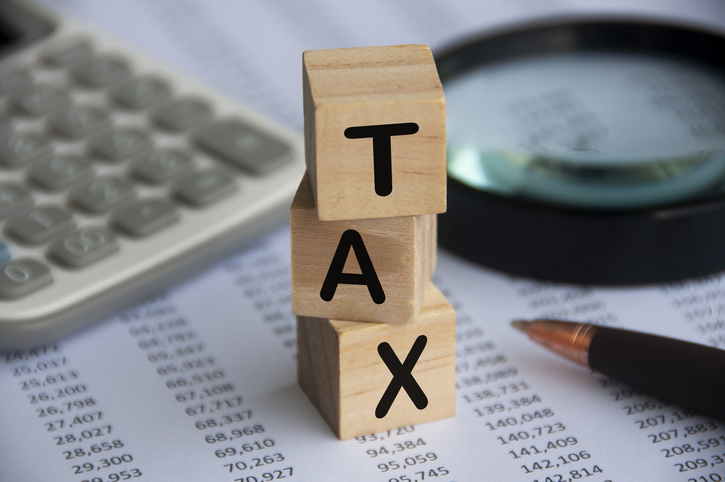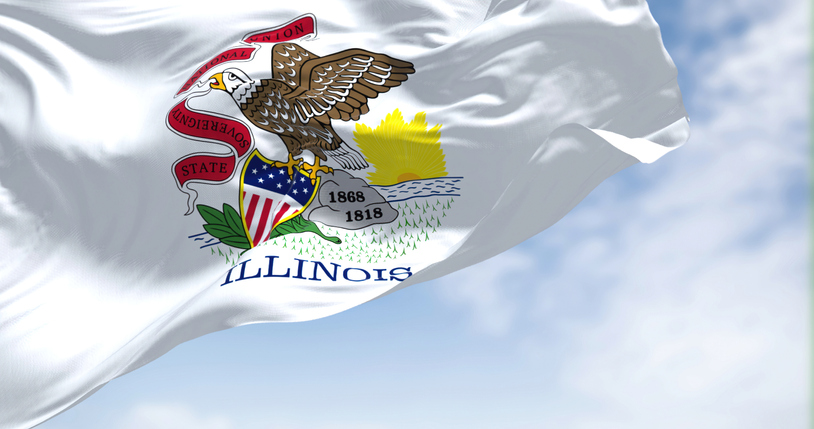State and local taxes affect every business in Illinois in one way or another. To ensure their clients remain tax compliant, it’s important for CPAs to know the fundamentals, red flags, and where to look for additional guidance.
State and local taxes (SALT) refer to any tax that isn’t administered by the federal government. Instead, these taxes are administered by the state revenue department, the state comptroller, tax commissioner, or the city’s/county’s department of finance, and operate completely independent of federal taxes.
While SALT requirements vary significantly state by state, there’s some level of uniformity in terms of the types of taxes collected by a state. While certainly not exhaustive, the list below covers some of the more popular state taxes:

- Sales and Use Tax: for the consumption of certain goods or services within the state.
- Income Tax: for the opportunity to generate income from within the state.
- Franchise Tax: for the opportunity to exist as a legal entity within the state.
- Excise Tax: a levy on certain manufactured products that’s charged on a per-unit basis.
- Property Tax: a tax for the privilege to own property within the state.
- Gross Receipts Tax: for the opportunity to generate income while being in the state, irrespective of the income’s source.
In Illinois, corporations are expected to file the following taxes on a yearly basis:
- Income Tax
- Sales (also referred to as Retailers’ Occupation) and Use Tax
- Franchise Tax (until Dec. 31, 2025)
- Personal Property Replacement Tax
Like many other states, Illinois also has a series of local taxes that businesses are expected to pay. These are paid on top of the state-wide taxes listed above. For CPAs that focus on federal tax compliance, here’s an overview on various SALT requirements to be aware of and how states can differ from one another.
Tax Exemptions in Illinois
One of the key areas where states differ from one another when it comes to SALT is the way in which they define taxability.
Each state has its own list of exemptions, which span across products, services, and entities. In Illinois, for example, there’s a comprehensive list of exemptions when it comes to the Retailers’ Occupation Tax.
Notably, software as a service (SaaS) and other information system services are considered exempt from sales tax in Illinois, which isn’t necessarily the case in other states.
Assuming a product, service, or entity is exempt means that sales tax isn’t expected to be collected on the product or from the customer.
It’s also important to note that nexus with the state of Illinois is established based on gross receipts, which includes exempted transactions (more information on this below).

Chicago’s PPLT Tax
The Personal Property Lease Transaction (PPLT) tax is an example of a local Illinois tax, which businesses based in Chicago are expected to pay. This tax was designed to levy businesses leasing certain goods or services, as opposed to purchasing them (where Sales and Use Tax would be required).
Originally, this tax was used to tax the lease of computers. However, as technological trends continue to advance, the tax now covers nonpossessory computer lease services, which refers to expenses pertaining to cloud computing, information systems, and SaaS-type services.
Importantly, given that SaaS isn’t taxable on a state level in Illinois, the PPLT tax has the potential to catch businesses off guard and be easily overlooked, so it’s important not to fall victim to this oversight.
An interesting point about Chicago’s PPLT tax is that it’s only required for the lease of these products or services for those physically based in Chicago. This means any business with a remote workforce outside of the city doesn’t need to pay this tax for that portion of its workforce.
Often, SaaS or cloud computing companies will charge this tax for the bulk transaction to the company headquarters, not taking into account that it wouldn’t be applicable to users and accounts outside of the city. If this occurs, there’s a method through which the overpaid PPLT tax can be recouped retrospectively, and the costs can be apportioned in an official capacity.
Nexus and Remote Sellers
If the above is only just a taste of SALT in Illinois, one can only imagine how complex SALT can be for businesses based outside of Illinois that are conducting business within the state. Not only does a remote seller need to consider the SALT requirements of their own home state, but they also need to consider what other states require of them.
The requirement to deal with (i.e., register for, pay, collect, etc.) state taxes as a remote seller into any state comes down to whether the business has sufficient activities or connections with the state. This is referred to as the establishment of nexus.
There are two ways in which nexus can be established in any state:
- Physical Presence: office, inventory, remote workers, etc.
- Economic Nexus: sufficient economic activity (revenue and/or transactions) within the state.
Each state has its own expectations, rules, and guidelines on how to define economic nexus. In Illinois, it’s defined as either:
- $100,000 or more in gross receipts from the sale of personal property in the state.
- 200 or more individual transactions relating to the sales of tangible personal property in the state.
Prior to 2021, remote retailers that established nexus in Illinois were only required to collect the state Use Tax from their customers in the state. As of Jan. 1, 2021, this requirement was extended to include the state and local Retailers’ Occupation Tax, effectively the same tax that local retailers are expected to collect.
Of course, care must be taken for remote retailers that were registered prior to 2021 to ensure that the transition outlined above occurred in their sales tax collections in Illinois. Importantly, this process would have needed to be manually updated in order to prevent under-collection and potential penalties or interest.
When in Doubt, Consult With an Expert
As you can see, SALT is constantly in flux—rates are changing, rules are shifting, and guidelines are constantly evolving.
Unless they possess the internal capabilities of a specialized SALT practice, most CPA firms aren’t prepared to provide ongoing guidance on complex SALT or multistate tax issues. Additionally, clients are generally unaware of this nuance and expect their CPAs to be all-knowing.
CPAs can rest assured that there are specialists out there who they can liaise with and seek guidance from—whether it’s with tasks as straightforward as state tax registrations or as complex as defending a sales tax audit. There are also endless amounts of articles and guidelines available to CPAs on state websites that cover basic matters and protocols on SALT.
Remember, as matters deepen in complexity, so do SALT requirements. Reach out to a SALT expert for guidance and assistance when needed to ensure your clients are compliant with each state’s tax requirements.





